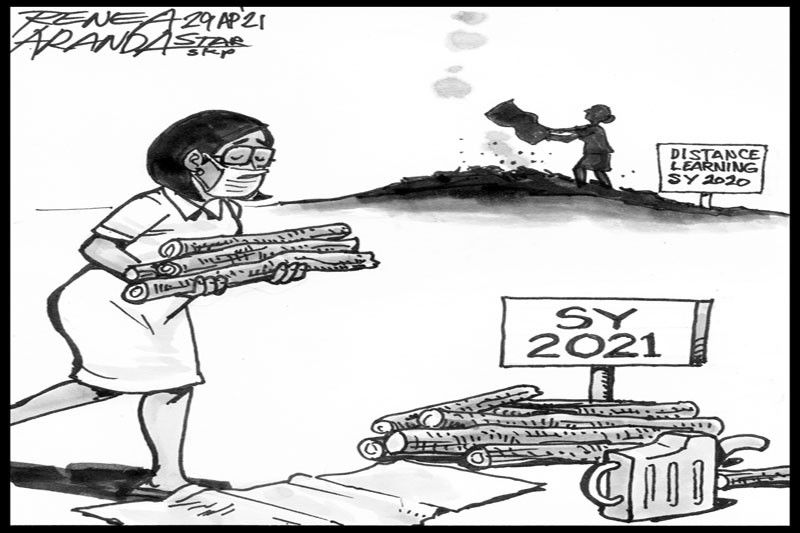EDITORIAL - Back to face-to-face classes?

From the start, education officials were aware of the challenges posed by blended learning to both students and educators. But blended learning was deemed to be better than nothing as the pandemic forced children to stay at home.
The lack of the needed gadgets and internet connectivity for distance learning was the first major hurdle. Approximately 2.7 million school children did not enroll – many because of this lack, and others because their parents had lost their livelihoods and could not afford even the miscellaneous expenses for putting a child through school. Cramped dwellings particularly in informal communities are also not conducive to learning.
Blended learning requires greater participation of parents in their children’s education. This has been a problem in low-income households where parents themselves have limited education, or where parents must work outside the home.
Because of such challenges, there have been proposals since late last year to resume limited face-to-face classes in areas at low risk of COVID transmission. The United Nations Children’s Fund, which has expressed concern over millions of students being left behind under the blended learning mode, welcomed the plan. But this was before the ongoing surge, fueled by more infectious and deadlier coronavirus variants.
Education officials nevertheless are considering the implementation of limited face-to-face classes in the next school year, tentatively set to start on Aug. 23, with the usual two-month school vacation reduced to six weeks. This has been backed by advocacy group Philippine Business for Education.
Seeing hospitals overwhelmed by the surge, and with daily COVID cases still in the thousands, the move will have to be weighed with utmost care. While children are less vulnerable to COVID infection, they can transmit the virus to vulnerable members of the household. With vaccination crawling along, teachers may also face greater risk of infection.
On the other hand, too many children are being left behind in their education, and it will have a significant impact on national development. If measures can be in place to ensure the health of learners and educators alike in low-risk areas, face-to-face classes must resume.
- Latest
- Trending
























